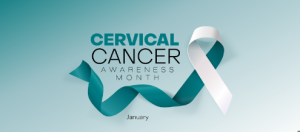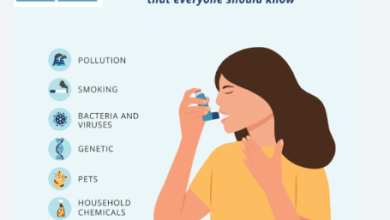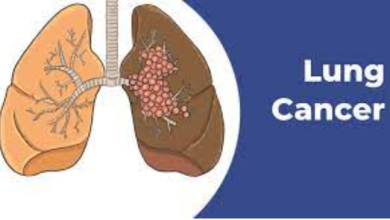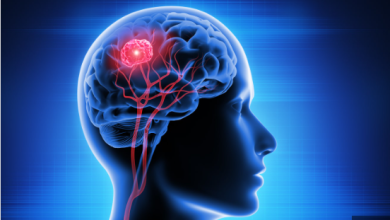Cancer Navigating the Journey of Hope and Healing

Outline
I. Introduction
A. Definition of Cancer B. Prevalence and Impact
II. Understanding Cancer
A. Causes and Risk Factors B. Common Types of Cancer C. Cancer Stages
III. Detecting Cancer Early
A. Importance of Early Detection B. Screening Methods
IV. Treatment Options
A. Surgery B. Chemotherapy C. Radiation Therapy D. Immunotherapy
V. Living with Cancer
A. Supportive Care B. Lifestyle Changes C. Emotional Well-being

VI. Advances in Cancer Research
A. Breakthrough Discoveries B. Future Trends
VII. Prevention Strategies
A. Healthy Lifestyle Choices B. Vaccinations C. Genetic Counseling
VIII. Navigating the Healthcare System
A. Patient Advocacy B. Communication with Healthcare Providers
IX. Impact on Families and Caregivers
A. Support for Loved Ones B. Coping Strategies
X. Global Efforts Against Cancer
A. International Initiatives B. Collaborative Research
XI. Inspirational Stories
A. Survivor Stories B. Contributions to Cancer Advocacy
XII. Addressing Myths and Misconceptions
A. Common Misbeliefs B. Dispelling Myths
XIII. Future Outlook
A. Promising Developments B. Challenges Ahead
XIV. Conclusion
A. Recap of Key Points B. Encouragement for Readers
Cancer: Navigating the Journey of Hope and Healing
Cancer, a word that can strike fear into the hearts of many, is a complex and pervasive disease that affects millions worldwide. In this comprehensive guide, we will delve into the multifaceted aspects of cancer, from its origins to treatment options, and explore the emotional and practical challenges faced by individuals and their families.
I. Introduction
A. Definition of Cancer
Cancer, at its core, is an abnormal growth of cells with the potential to invade or spread to other parts of the body. It can manifest in various forms, affecting organs, tissues, and systems.
B. Prevalence and Impact
The global impact of cancer cannot be overstated, with millions of new cases reported each year. Understanding the prevalence and impact sets the stage for a deeper exploration of this complex disease.
II. Understanding Cancer
A. Causes and Risk Factors
Unraveling the causes and risk factors behind cancer is crucial for prevention. Genetics, lifestyle choices, and environmental factors contribute to the development of this disease.
B. Common Types of Cancer
From breast cancer to lung cancer, each type presents unique challenges. We’ll explore the characteristics of common cancers, shedding light on their distinct features.
C. Cancer Stages
Understanding the stages of cancer is essential for tailoring treatment plans. From early detection to advanced stages, the progression of cancer significantly impacts prognosis.
III. Detecting Cancer Early
A. Importance of Early Detection
Early detection can be a game-changer in the fight against cancer. We’ll emphasize the significance of regular screenings and prompt medical attention.
B. Screening Methods
From mammograms to colonoscopies, various screening methods aid in the early detection of cancer. Familiarizing oneself with these methods empowers individuals to take proactive measures.
IV. Treatment Options
A. Surgery
Surgery remains a cornerstone in cancer treatment, aiming to remove tumors and prevent their spread. We’ll explore the different surgical approaches and their implications.
B. Chemotherapy
Chemotherapy, though often associated with side effects, plays a crucial role in targeting and eliminating cancer cells. Understanding its mechanisms is key to demystifying this treatment.
C. Radiation Therapy
Precision in targeting cancer cells is the essence of radiation therapy. We’ll delve into how this therapeutic approach harnesses the power of focused radiation.
D. Immunotherapy
Immunotherapy represents a paradigm shift in cancer treatment, leveraging the body’s immune system to combat cancer. We’ll explore its potential and current applications.
V. Living with Cancer
A. Supportive Care
Beyond medical interventions, supportive care enhances the quality of life for individuals undergoing cancer treatment. We’ll discuss the importance of holistic care.
B. Lifestyle Changes
Adopting a healthy lifestyle can complement medical interventions. From nutrition to exercise, we’ll explore lifestyle changes that support cancer patients.
C. Emotional Well-being
Cancer affects not only the body but also the mind and spirit. Nurturing emotional well-being is a crucial aspect of the cancer journey, and we’ll provide strategies for coping.
VI. Advances in Cancer Research
A. Breakthrough Discoveries
In the realm of cancer research, breakthrough discoveries continually reshape our understanding. We’ll highlight recent advancements that offer hope for the future.
B. Future Trends
The trajectory of cancer research points towards personalized medicine and innovative treatments. We’ll explore the potential trends shaping the future of cancer care.
VII. Prevention Strategies
A. Healthy Lifestyle Choices
Prevention is paramount, and adopting a healthy lifestyle can significantly reduce the risk of developing cancer. We’ll discuss dietary choices, exercise, and other preventive measures.
B. Vaccinations
Certain vaccinations play a role in preventing specific cancers. We’ll delve into the vaccines that contribute to the prevention of these diseases.
C. Genetic Counseling
Understanding one’s genetic predisposition to cancer allows for informed decisions. We’ll explore the role of genetic counseling in identifying and mitigating risk.
VIII. Navigating the Healthcare System
A. Patient Advocacy
Navigating the healthcare system can be challenging, and patient advocacy is crucial. We’ll provide insights into how individuals can advocate for themselves or their loved ones.
B. Communication with Healthcare Providers
Effective communication with healthcare providers is integral to comprehensive care. We’ll offer tips on fostering open and clear communication.
IX. Impact on Families and Caregivers
A. Support for Loved Ones
Cancer doesn’t only impact the individual diagnosed; it affects their loved ones too. We’ll discuss ways in which friends and family can provide support during challenging times.
B. Coping Strategies
Coping with a cancer diagnosis requires resilience and coping strategies. We’ll explore techniques for both patients and their support networks.
X. Global Efforts Against Cancer
A. International Initiatives
Cancer knows no borders, and international collaboration is key to tackling this global health challenge. We’ll highlight major international initiatives in the fight against cancer.
B. Collaborative Research
Collaboration among researchers and institutions accelerates progress. We’ll explore how collaborative research is driving advancements in cancer treatment and prevention.
XI. Inspirational Stories
A. Survivor Stories
Survivor stories inspire hope and resilience. We’ll share narratives of individuals who have overcome the challenges of cancer, showcasing the strength of the human spirit.
B. Contributions to Cancer Advocacy
Many individuals dedicate their lives to advocating for cancer awareness and research. We’ll celebrate the contributions of those who have made a significant impact in the field.
XII. Addressing Myths and Misconceptions
A. Common Misbeliefs
Misinformation can contribute to fear and confusion. We’ll address common myths surrounding cancer, providing clarity on prevalent misconceptions.
B. Dispelling Myths
Through evidence-based information, we’ll debunk myths and promote a better understanding of the realities of cancer.
XIII. Future Outlook
A. Promising Developments
From targeted therapies to advancements in early detection, we’ll explore promising developments that offer hope for a brighter future in the fight against cancer.
B. Challenges Ahead
Despite progress, challenges persist. We’ll discuss the hurdles that researchers, healthcare providers, and individuals face in the ongoing battle against cancer.
XIV. Conclusion
A. Recap of Key Points
In this comprehensive exploration of cancer, we’ve covered its definition, causes, detection, treatment, and the profound impact it has on individuals and their families.
B. Encouragement for Readers
As we conclude, let’s remember that knowledge is a powerful tool. By understanding cancer on multiple fronts, we empower ourselves to navigate this journey with resilience, hope, and a commitment to a healthier future.
FAQs (Frequently Asked Questions)
- Is cancer always hereditary, or can it be caused by lifestyle choices? Cancer can have both genetic and lifestyle factors. While some cancers may have a hereditary component, lifestyle choices such as diet, exercise, and exposure to certain substances also play a significant role.
- How often should I undergo cancer screenings? The frequency of screenings depends on factors like age, gender, and risk factors. Consult with your healthcare provider to determine a personalized screening schedule.
- Are all cancers treated with chemotherapy? No, not all cancers are treated with chemotherapy. Treatment approaches vary based on the type and stage of cancer. Consultation with a healthcare professional helps determine the most suitable treatment plan.
- Is there a cure for cancer? The term “cure” varies by cancer type and stage. While some cancers have high remission rates, ongoing research aims to improve treatments and outcomes.
- How can I support a friend or family member diagnosed with cancer? Providing emotional support, assisting with daily tasks, and being a good listener are invaluable ways to support someone navigating the challenges of cancer.




